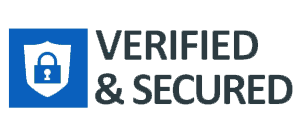As concerns over climate change intensify and the global push towards sustainability grows stronger, small businesses find themselves facing the inevitable question – How can we transition to renewables? Here are ten key questions you need to consider to make this critical shift.
1. What is your current energy consumption?
Understanding your current energy consumption is the first step towards a greener business. This will help you identify areas where energy use can be optimized and where renewable options can be introduced.
2. What renewable options are available for your business?
From solar power to wind energy, there are multiple renewable options available. Your choice will depend on factors such as your location, business needs, and budget.
3. How will the transition affect your operations?
Switching to renewables may require significant changes in your operations. Assessing this impact beforehand will help in planning for a smooth transition.
4. What are the cost implications?
Transitioning to renewables is often viewed as a costly endeavor. However, with potential long-term cost savings and various incentives available, the overall financial impact might be more positive than you expect.
5. How can technology aid in your transition?
Advancements in technology, such as Artificial Intelligence (AI), can significantly aid your transition. AI can analyze energy usage patterns and suggest optimal renewable strategies. Learn more about harnessing AI for business growth at EmpowerLend.
6. What incentives or support are available?
Many governments and organizations offer incentives to businesses making the switch to renewables. Explore these options to help offset the initial costs of your transition.
7. How will the transition impact your brand image?
Transitioning to renewables is not just an environmental decision but also a strategic one. It can significantly enhance your brand’s image, showcasing your commitment to sustainability.
8. Are your employees ready for the transition?
Any significant change in business operations requires buy-in from employees. Plan for training and communication strategies to ensure your team is on board.
9. How will you manage the transition period?
A transition to renewable energy is likely to have a transition period where conventional and renewable energy sources coexist. This period needs to be managed effectively to ensure minimal disruption to your operations.
10. What is your long-term plan?
Finally, transitioning to renewables should be part of your long-term business strategy. Consider how this move aligns with your future business goals and growth plans.
In conclusion, the transition to renewables for small businesses is not a simple process. It requires careful consideration and planning. However, with the right approach, it can yield significant benefits – not just for the environment, but for your business too. By asking yourself these ten critical questions, you can navigate the transition effectively and steer your business towards a sustainable future.


